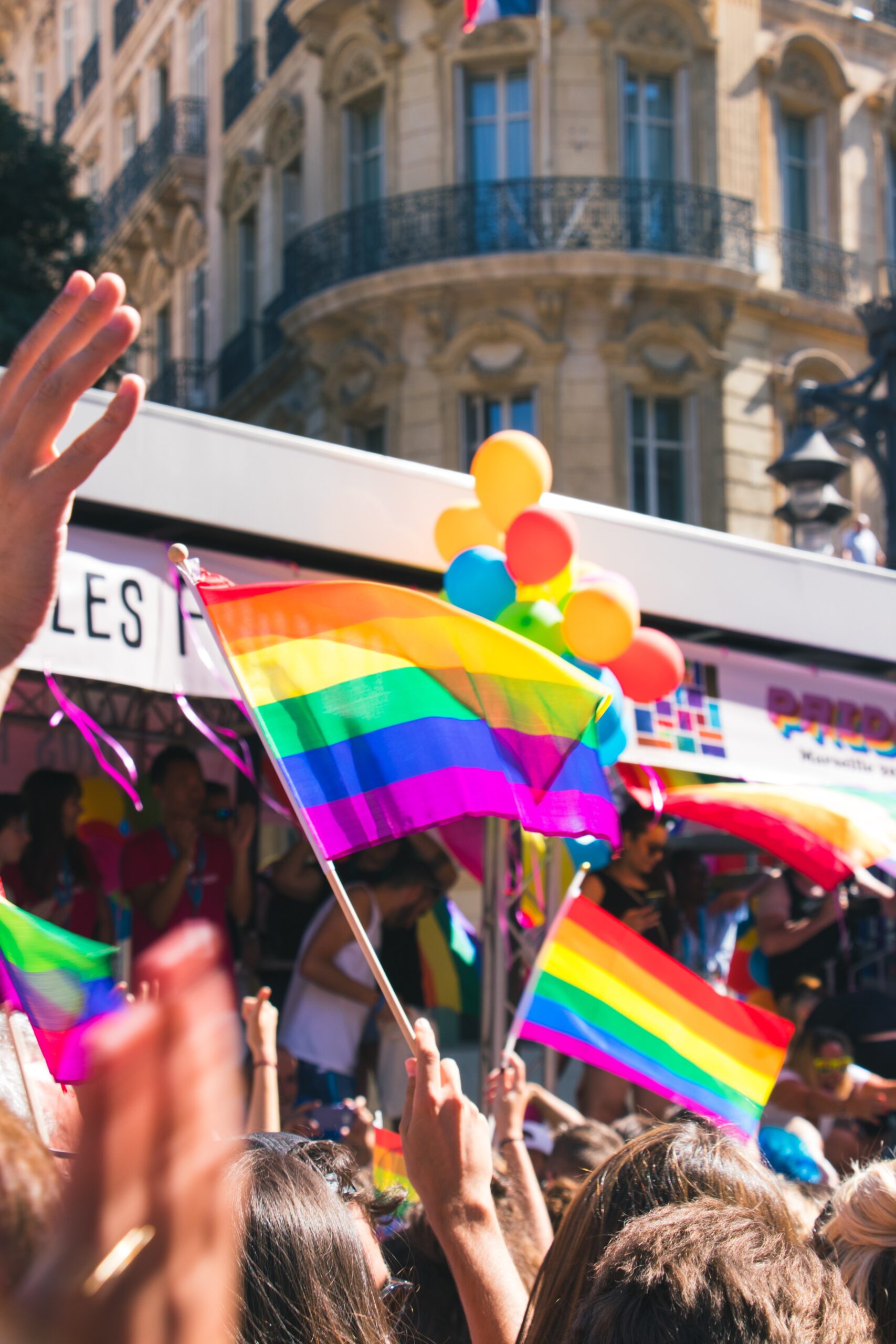
Pride
Photo by Tristan B. on Unsplash
June is Pride Month, and for LGBTQIA folks that means celebration, activism, and remembrance. For corporations, on the other hand, Pride Month means the same thing as every other month—profit.
Over the past few years, LGBTQIA Pride—and in a larger sense, social justice—has become increasingly corporatized. The more accepted traditionally marginalized groups become, the more companies try to commercialize them. The same can be said for Black History Month, Women’s History Month, etc. This corporatization is a contentious issue for many within said groups—nobody likes having the core issues that affect their daily lives become money-making props for faceless, morally bankrupt companies.
At the same time, increased visibility and representation does push cultural normalization, regardless of whether or not the intent is pure of heart. Moreover, considering the increasingly widespread acceptance of LGBTQIA movements, it’s likely that many of the people conceiving, producing, and pushing these campaigns do support the cause. So is there a way for corporations to engage with Pride Month that doesn’t seem exploitative?
Obviously, slapping a rainbow flag on something doesn’t make you an ally. Donald Trump proved this by being the first Republican president to acknowledge Pride Month while he continued to push an ongoing campaign against trans people. Similarly, a company turning their logo into a rainbow or pumping out some rainbow-themed hats shouldn’t breed good will, especially not when their corporate values don’t adhere to social justice principles in the first place (i.e. supporting oppressive labor conditions).
But how about companies that donate portions of their profits to LGBTQIA causes? Some, like Harry’s razors, go above and beyond, creating special LGBTQ+ promotions and donating 100% of profits to relevant causes. While they obviously benefit from the good will that “wokeness” tends to build with paying customers, it’s hard to argue against a company donating 100% of from a promotion to a good cause.
The waters grow murkier with a company like Disney, which donates a mere 10% of their LGBTQ+ promotional profits to actual LGBTQ+ causes. Of course, 10% of Disney’s rainbow Mickey profits likely makes for a greater donation total than 100% of Harry’s special razor set profits. But if the issue is sentiment, then Disney doesn’t cut it, especially considering their ongoing trend of poor LGBTQIA representation in film.
So then what’s the cut-off? 50%? 70%? The answer is holistic. Donating to LGBTQIA charities and causes is always great, even if it’s only a small amount. But donations don’t exist in a bubble. If a company is using an important issue to ultimately make more money than what they’re actually donating to benefit it, then they’re appropriating social justice for profit.
The same goes for companies that use LGBTQIA models in their advertisements during Pride Month. Increased representation is great, but if LGBTQIA models are only used during a single month, then they’re arguably still being relegated to a corporate novelty. On the other hand, if a company uses LGBTQIA models during other year-round campaigns too, then their participation in Pride Month seems far more legitimate.
All this being said, representation really is important. The recent Gillette ad starring a transgender actor is clearly still intended to sell Gillette razors and probably isn’t monetarily contributing very much to the trans community. At the same time, seeing trans people finally treated like normal, everyday people in a widespread advertisement seems like a step in the right direction, culturally.
Ultimately, the corporatization of Pride Month and other social justice-related movements must be gauged on a case-by-case basis. In a larger cultural context, it’s possible to accept the benefit of a corporation’s involvement while still realizing and remaining wary of the fact that their primary goal is not benevolent.
- Jason White On Writing Carrie Underwood’s ‘Choctaw County Affair … ›
- Country’s Storied Past, African American Tradition & Beyonce’s … ›
- PREMIERE | PostScript Video “The Witch in the Wood” – Popdust ›
- The Classist Hypocrisy of Rihanna’s New Luxury Clothing Line … ›
- The Horrifying Corporate Zombies of Branded Twitter – Popdust ›
- Pride-Themed Advertising Is Everywhere, but Hold Your Applause … ›
- Companies when pride month hits | LGBTQ+ Pride Month | Know … ›
- Pride 2019: Which companies actually support LGBTQIA+ … ›
- Top 15 inclusive organizations celebrating LGBTQ pride this June ›
- 10 Companies That Support the LGBT Community | Teen Vogue ›
- How tech companies are recognizing Pride Month | TechCrunch ›
- Fashion Brands & Companies Giving Back For Pride Month ›
- 36 Major Companies Celebrating Pride With Social Media / Queerty ›
- These 30 Brands Are Celebrating Pride by Giving Back to the LGBT … ›
- LGBTQ Pride Month: how brands turned Pride Month into a … ›













